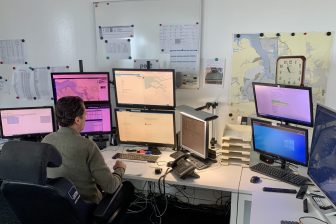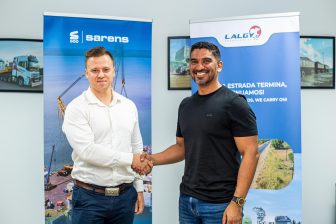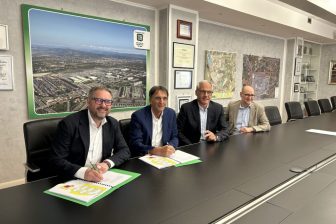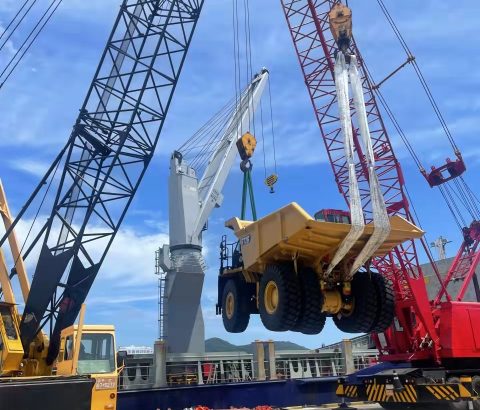
Ahlers: preparation and expertise open doors to success
Successful project delivery depends on preliminary preparation and calculations, and delivering mining equipment is no exception to the rule. However, the pandemic threw a spanner in the works and geopolitical challenges added another layer of complexity on top of it.
Speaking to Project Cargo Journal, Konstantin Shepel, Business development manager CIS, Projects & Machinery at Ahlers, noted that old schemes do not work due to various restrictions, disruption of supply chains, and global market changes. “Since February 2022, geopolitical uncertainties, sanctions and self-restrictions imposed by various countries have been added to this,” Shepel says.

Navigating the complex landscape means that Ahlers Projects & Machinery division has to work outside the regular schemes and devise plans not only based on the standard cargo information. “Nowadays we look into the client’s wishes but also restrictions on the route, which allows us to check the logistics capacity with our colleagues and agents. This included the availability of special equipment, reloading capabilities, as well as the features of the required documentation. In short, victory loves preparation,” Shepel stressed.
This also includes preliminary preparation and coordination with several regulatory authorities due to the fact that such equipment is imported under a special customs regime meaning all the transport units are transported and declared as a block, with a preferential customs code, often with zero customs rate.
The right expertise
Capacity constraints in major ports and on the Chinese border, which is where the equipment enters the CIS region, is still a major issue for all logistics companies. Each modality used to cross the border between China and Kazakhstan has been dealing with overload.
“The options for crossing the land border with Kazakhstan from China are quite diverse, but since the beginning of covid, all these options have been associated with overload, which significantly weakens the capacity of the borders,” Shepel says.
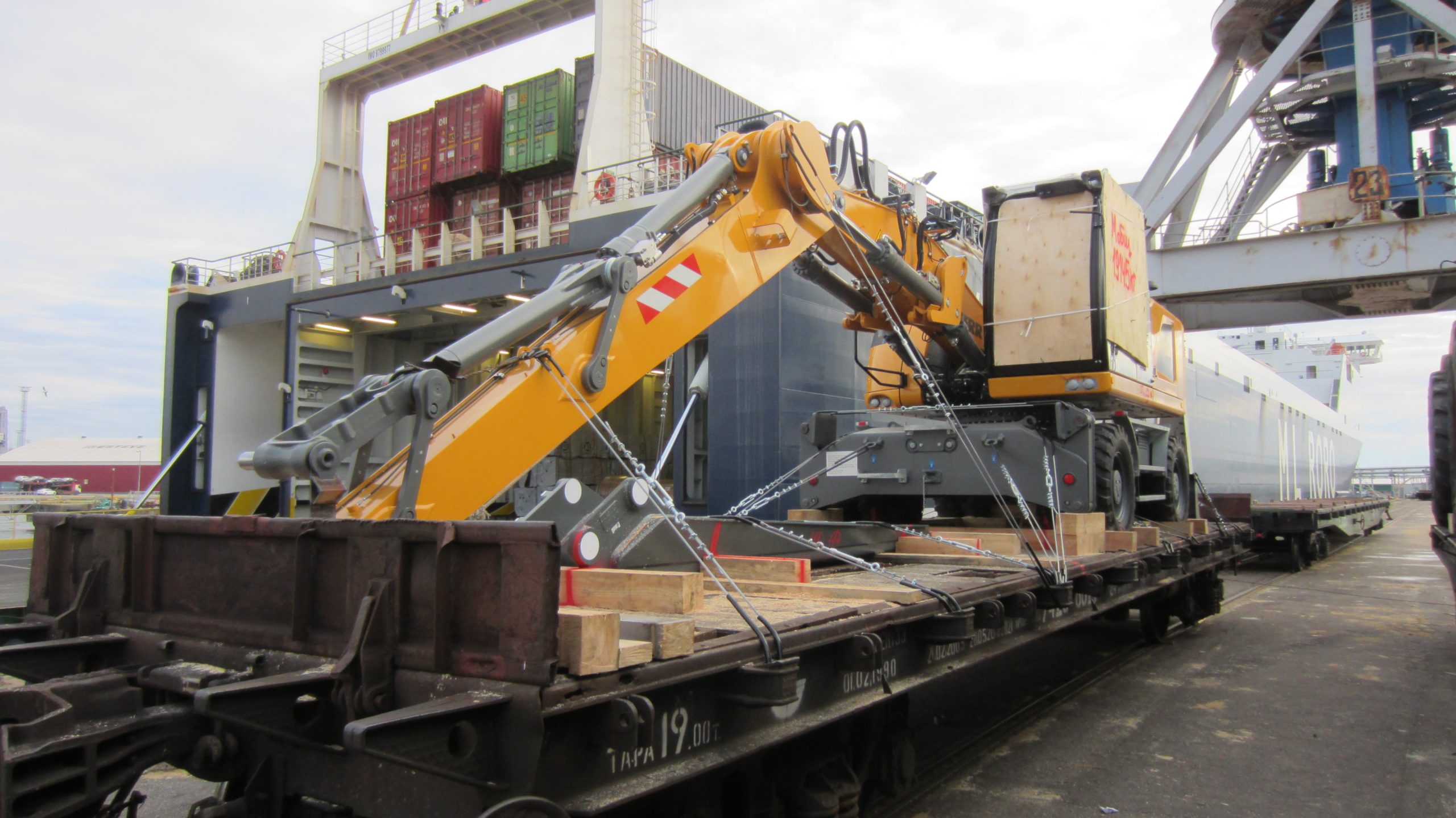
Finding the right solutions depends on the types of vehicles, queues at specific checkpoints, and budget. In certain instances, there is a lot of disassembling involved due to the size of the machines. “For example, on the border crossings from China into Kazakhstan, two options are available, namely the electronic queue and the Fast Road pilot project. Both of these options have their pros and cons, but the main impact is on the timing and cost of crossing the border,” Shepel says, adding that using the so-called electronic queue to cross the 5-kilometer distance between the two borders can cost anywhere between $7,000 and $12,000 per truck.
The next stage of transport begins once the equipment arrives in Kazakhstan when the decision needs to be made on the modality of transport to the end destination. The majority of transport is carried out by road or by rail Shepel says, noting that this requires a different level of competence. This is not much about the standard transportation but more about developing the schemes for securing the cargo, obtaining special permits for oversized cargo, organizing overload surveys, escort, and protection from vandalism, while precisely controlling each stage of the transport.
It is not unusual for the logistics services provider to devise a number of possible plans in order to make sure cargo arrives at its destination on time and on budget, despite the issues that may arise in the process.
Speaking of getting the cargo to the destination on time, Shepel notes that Ahlers dips into its own network of agents to consider several transportation options, get a different opinion, and ensure fair pricing. “There is always a plan B, from changing border crossing points to changing the transportation modality when unforeseen difficulties arise. For especially large cargoes, a route survey is carried out, taking consideration of bridges, electrical networks, or road width in settlements, for example,” he said. “In a recent project, flight bridge technology was used to obtain permission and carry out the transportation, allowing the load to be distributed over more bridge piers.”
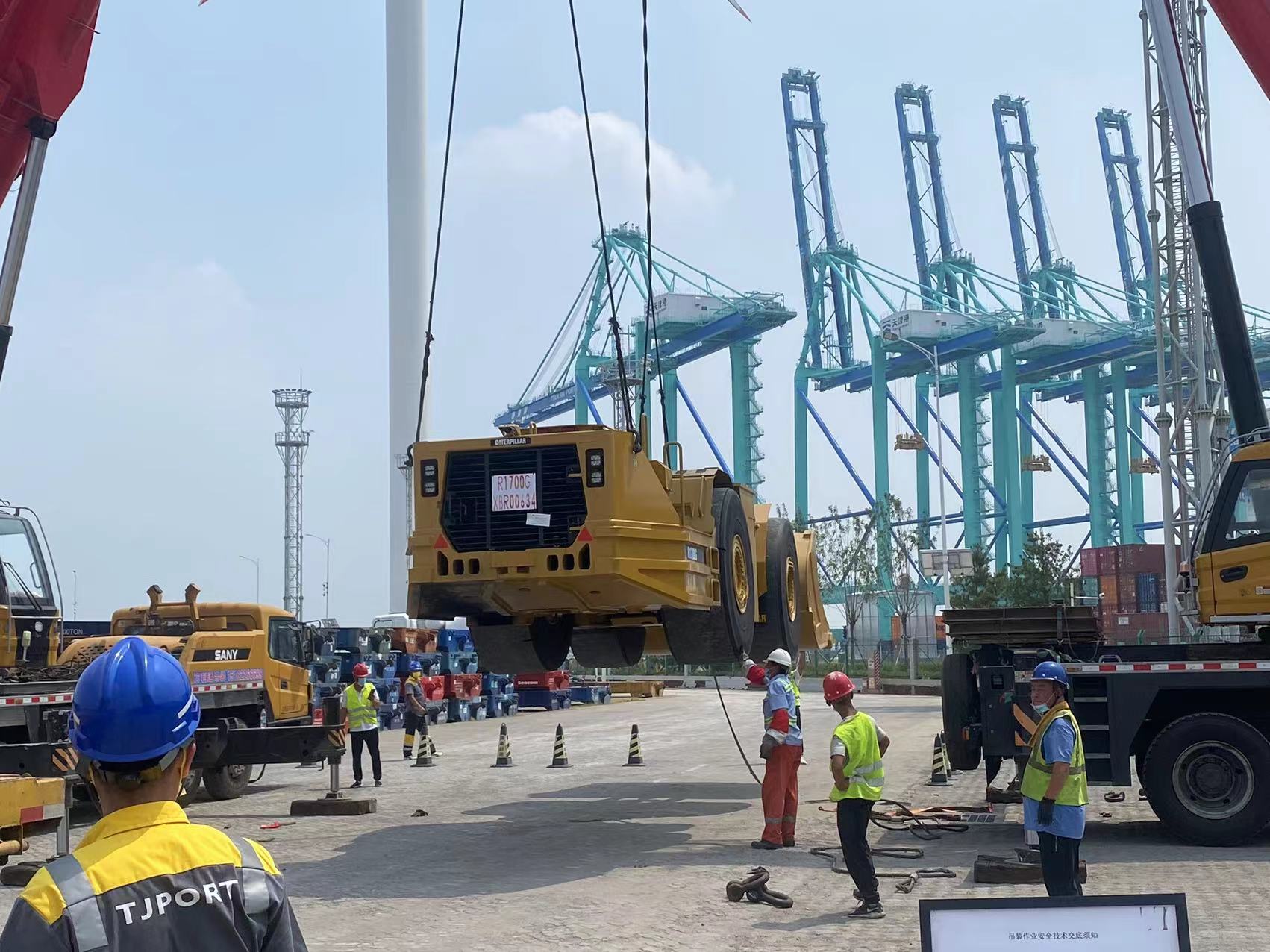
Communication with agents and the right partners on each project ensures the company provides a tailor-made solution to its customers, and that all the permits and documents are in order to avoid delays or fines. Ahlers’ vast network also comes into play when it comes to understanding the logistical, political and epidemiological situation in different countries. Having colleagues across the globe provides Ahlers with local knowledge of the characteristics of specific countries, or the beneficiaries of unique facilities that the company may require in order to unload the mining equipment at hand.
“We are also flexible in our approach to the requirements/expectations of our customers. We operate locally based on many years of experience within a global approach and an international cross-functional team, ”Shepel adds, concluding that all the transportation it does is insured with processes adjusted according to international practices. Additionally, each customer is unique and comes with specific requirements and processes that Ahlers takes into consideration.
You just read one of our premium articles free of charge
Register now to keep reading premium articles.


